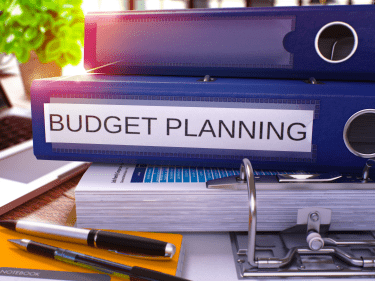Top Home Security Systems for Every Budget

Top Home Security Systems for Every Budget
Home security is one of those crucial aspects that no homeowner should overlook. It’s not just about safeguarding your property but also about ensuring the safety and well-being of your loved ones. Today, we’re diving deep into the world of home security systems that cater to every budget. Whether you’re a homeowner aiming for a robust security setup or someone looking to invest smartly without breaking the bank, this guide is for you.
The first step to effective home security is understanding your needs and balancing them with what you can afford. When it comes to budgeting tips for home security, it’s essential to conduct a thorough cost-benefit analysis. This means weighing the costs of various systems against the benefits they offer, ensuring you get the most bang for your buck. As you navigate through this article, we’ll explore how you can efficiently budget for home security and make informed decisions that keep your home safe without stretching your finances too thin.
Understanding the Importance of Home Security
Before we delve into the specifics of various home security systems, let’s take a moment to understand why home security is paramount. In today’s world, where burglaries and unauthorized entries are not uncommon, having a reliable home security system offers peace of mind.
Understanding the Cost-Benefit Analysis of Home Security Systems

Understanding the Cost-Benefit Analysis of Home Security Systems
In today’s world, safeguarding your home is more important than ever. With the rise in crime rates and the increasing number of break-ins, investing in a reliable home security system has become a necessity for many homeowners. But before you dive into purchasing one, it’s essential to conduct a thorough cost-benefit analysis. This will not only help you make an informed decision but also ensure that you manage home finances effectively, thereby providing peace of mind and financial stability. Considering both the initial investment and the long-term benefits can guide you to the best choice for your household.
The Importance of Home Security Systems
Home security systems are designed to protect your home from various threats, including burglaries, fires, and even carbon monoxide poisoning. These systems come equipped with a range of features such as alarms, surveillance cameras, motion detectors, and smart locks. The primary goal is to deter potential intruders and provide real-time alerts in case of any suspicious activities. Understanding the importance of these systems can help you appreciate their value beyond the upfront costs.
Key Features of Modern Home Security Systems
When evaluating home security systems, it’s crucial to understand the features they offer.
The Role of Emergency Funds in Home Security

The Role of Emergency Funds in Home Security
When you think about home security, the first things that pop into mind are probably alarm systems, motion detectors, and maybe even a trusty guard dog. But what if I told you that one of the most critical elements of home security has nothing to do with physical barriers or electronic gadgets? That’s right—I’m talking about your emergency fund. An emergency fund is more than just a financial cushion; it’s a fortress that protects you from unexpected events that could jeopardize your home and family’s security. Whether it’s an unforeseen medical bill, sudden job loss, or an urgent home repair, having an emergency fund can mean the difference between sailing smoothly through crises or sinking into financial chaos.
In this article, we’ll dive deep into why an emergency fund is a cornerstone for maintaining your home security, how to build one, and the role it plays in your overall financial plan, including managing insurance costs and budgeting for emergencies. We’ll also touch upon the importance of credit monitoring in safeguarding your financial standing.
Why an Emergency Fund is Essential for Home Security
Building an emergency fund might not be as glamorous as installing the latest home security system, but its importance can’t be overstated.
Leveraging Home Equity Loans for Security Upgrades

Leveraging Home Equity Loans for Security Upgrades
In today’s fast-paced world, ensuring the safety and security of your home is paramount. One of the often-overlooked avenues to enhance home security is through the strategic use of home equity loans. By tapping into your home’s equity, you can access necessary funds without the high interest rates associated with other financial products. This approach not only provides the capital for comprehensive security upgrades but also offers a secure financial plan tailored to your needs. Whether you’re looking to install advanced surveillance systems, reinforce entry points, or integrate smart home
technologies, leveraging home equity loans can be a game-changer in fortifying your residence against potential threats. For more insights on home loans and how they can benefit you, check out home loans.
Understanding Home Equity Loans
Home equity loans are a type of loan that allows homeowners to borrow against the equity they have built up in their property. Essentially, this means that your home acts as collateral, enabling you to secure funds based on the value of your home minus any outstanding mortgage balance. These loans come with several advantages, including lower interest rates compared to personal loans or credit cards, making them an attractive option for financing larger projects like home security upgrades.
How to Get Out of Debt: Practical Tips and Advice

How to Get Out of Debt: Practical Tips and Advice
Debt can often feel like an insurmountable obstacle, casting a shadow over every aspect of your life. The stress and anxiety associated with owing money can take a significant toll on your mental and emotional well-being, affecting your relationships, work performance, and overall quality of life. It’s a challenge that many individuals face, regardless of age or income level. Whether you’re grappling with the mounting pressure of credit card debt, the long-term burden of student loans, the weight of a mortgage, or even medical bills, acknowledging and addressing your debt is a critical step towards achieving financial stability and peace of mind.
Understanding the different types of debt is the first step towards crafting an effective strategy to manage and ultimately eliminate it. Credit card debt, often resulting from high-interest rates and impulsive spending, can quickly spiral out of control. Student loans, while an investment in your future, can linger for decades, affecting your ability to save and invest. Mortgages, although considered ‘good debt,’ still require diligent management to avoid falling behind. Medical bills can be particularly daunting, often appearing unexpectedly and adding to financial strain.
This comprehensive guide is designed to help you navigate the complexities of debt, offering practical tips and advice that go beyond mere budgeting.
The Basics of Investing: A Beginner’s Guide

The Basics of Investing: A Beginner’s Guide
Investing can seem like a daunting world to navigate, especially for beginners. With a myriad of options and often complex terminology, it’s easy to feel overwhelmed. However, understanding the basics of investing is within reach for anyone willing to learn. This beginner’s guide aims to demystify the process, provide clarity on fundamental concepts, and help you embark on your journey toward financial growth.
What is Investing?
At its core, investing involves allocating money into assets with the expectation of generating an income or profit over time. These assets can take various forms, such as stocks, bonds, real estate, mutual funds, and more. Unlike saving, which focuses on preserving money in a low-risk environment (like a savings account), investing aims for higher returns by taking on some level of risk.
Why Should You Invest?
- Wealth Creation: Investing allows your money to grow over time, helping you build wealth.
- Beating Inflation: The average inflation rate erodes the purchasing power of money. Investing can help you keep pace with or outstrip inflation.
- Achieving Financial Goals: Whether it’s buying a home, funding education, or preparing for retirement, investing helps in meeting long-term financial goals.
Key Concepts in Investing
Risk and Return
Investing inherently involves risk—the possibility that you may lose some or all of your invested capital.
Smart Saving Tips for Every Stage of Life

Smart Saving Tips for Every Stage of Life
Financial security is a critical aspect of leading a comfortable and stress-free life. However, the strategies to achieve this goal vary widely depending on one’s age, life stage, and financial circumstances. From youth to retirement, each phase demands unique savings tactics and careful financial planning. This comprehensive guide will provide smart saving tips tailored to every stage of life, ensuring you can pave your way to financial stability regardless of where you are in your journey.
Childhood and Teens – Building Foundations
Learning the Value of Money
The foundation of smart saving begins in childhood. Parents should instill the basic concept of money management by teaching their children the value of money. Simple activities like handling pocket money, doing chores for an allowance, or saving birthday money can be excellent starting points.
Opening a Savings Account
Encouraging children to open a savings account can be a significant step. It helps them understand how banks operate and the benefits of saving money in a secure place. Plus, witnessing their savings grow can be a powerful motivator.
Setting Saving Goals and Budgeting
Teens can start setting small financial goals, such as saving for a gadget, a trip, or even college.
How to Create a Budget That Works for You

How to Create a Budget That Works for You
Creating a budget that truly works for you isn’t just about numbers on a spreadsheet; it’s about shaping a financial plan that aligns with your lifestyle, goals, and priorities. In today’s fast-paced world, personal budgeting is more crucial than ever. Whether you’re saving for a dream vacation, paying off debt, or building an emergency fund, a well-structured budget can be a game-changer. Effective financial planning doesn’t follow a one-size-fits-all approach. It involves understanding your income, expenses, and financial goals. By learning how to manage your home finances efficiently, you set yourself up for long-term success and stability. This comprehensive guide will walk you through the steps to create a budget tailored to your unique needs.
Understanding Your Financial Situation
Before diving into creating a budget, take a moment to assess your current financial situation. Knowing where you stand financially is the foundation of successful personal budgeting.
Track Your Income
Start by listing all sources of income, including your salary, freelance work, side gigs, and any other streams. Note the frequency and amount of each source. Understanding your total monthly income is crucial for effective financial planning.
List Your Expenses
Next, compile a detailed list of your monthly expenses.
A Beginner’s Guide to Understanding Home Loans

A Beginner’s Guide to Understanding Home Loans
Purchasing a home is one of the most significant financial decisions you will make in your lifetime. For most people, this journey involves taking out a home loan. Given the complexities and variety of financial products available, navigating the landscape of home loans can be daunting for beginners. This guide aims to demystify home loans, providing you with a comprehensive understanding of what they are, how they work, and how you can choose the best option for your needs.
What is a Home Loan?
A home loan, also known as a mortgage, is a financial product that allows you to borrow money from a lender to purchase a property. The property serves as collateral for the loan, meaning the lender can seize the property if you fail to repay the loan according to the terms agreed upon.
Key Components of a Home Loan
- Principal: The initial amount of money you borrow.
- Interest Rate: The cost of borrowing the money, expressed as a percentage of the principal.
- Loan Term: The period over which you agree to repay the loan, typically 15, 20, or 30 years.
- Monthly Payments: Regular payments made to the lender, consisting of both principal and interest.
10 Smart Ways to Manage Your Home Finances Efficiently

10 Smart Ways to Manage Your Home Finances Efficiently
Managing your home finances efficiently is more crucial than ever in today’s economic climate. With the rising cost of living, unexpected financial challenges, and the constant evolution of financial products and tools, having a robust plan to oversee your finances can make a significant difference in achieving financial stability and peace of mind. Whether you’re looking to save for a rainy day, reduce debt, or simply gain better control over your household budget, implementing smart financial strategies is crucial. In this article, we will explore
ten effective methods to manage your home finances efficiently, from leveraging advanced tools like personal finance management software to practical money-saving tips anyone can follow. Moreover, we’ll discuss budget-friendly security solutions that not only protect your savings but also ensure the safety of your home without breaking the bank. So let’s dive in and discover how you can take command of your financial future with ease and efficiency.
Create a Realistic Budget
The cornerstone of successful home finance management is a realistic budget. Start by tracking all your income and expenses to understand where your money is going. Categorize your expenditures into essential and non-essential items. Essential items include things like rent, mortgage payments, utilities, groceries, and transportation.
